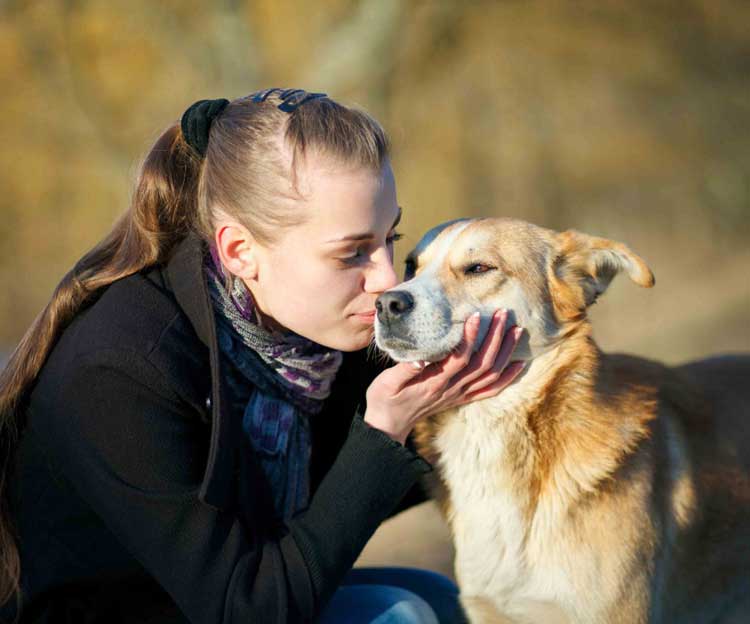Positive Reinforcement Dog Training
When it comes to dog training, professional dog trainers have many different philosophies and utilize various dog training techniques. If you’re looking into a dog training career, you’ll want to know the differences between these philosophies in order to select a school that offers the program you’re most comfortable with. Below is Animal Behavior College’s dog training philosophy and techniques.
Relationship Building Foundation
One of the first lessons our dog training school teaches our students is how to build a close relationship with dogs. We believe this can be accomplished through constant positive interaction with dogs; thereby creating a healthy foundation on which even the most difficult challenges can be easily solved. We also found that once a proper dog and human relationship is established, dogs are more likely to learn faster and less likely to display unwanted behaviors.
Behavior Shaping
Once students have established healthy relationships with their dogs, they’re ready to learn animal training techniques. These include: luring, shaping, capturing and molding, all of which focus on positive reinforcement dog training.
For example, lure training involves using a desirable object, such as a toy or treat, to teach dogs their cues. Likewise, the shaping method also focuses on positive reinforcement by teaching behaviors in small steps and rewarding each step along the way until the dog has learned the entire behavior.
Least Intrusive, Minimally Aversive Approach (LIMA)
Animal Behavior College’s philosophy is that creating a canine-human relationship built on positive interaction and consistency can often deter future unwanted behavior problems, facilitate faster learning and even solve existing behavioral challenges. This philosophy incorporates the scientific behavioral principles of operant conditioning theory and the LIMA approach. LIMA, short for Least Intrusive, Minimally Aversive was coined by Stephen Lindsay, in his book titled Handbook of Applied Dog Behavior and Training. ABC believes in using the LIMA approach to achieve success in training while maintaining the human-animal bond.
If you want to learn more about our dog training course, contact us at 800-795-3294.





